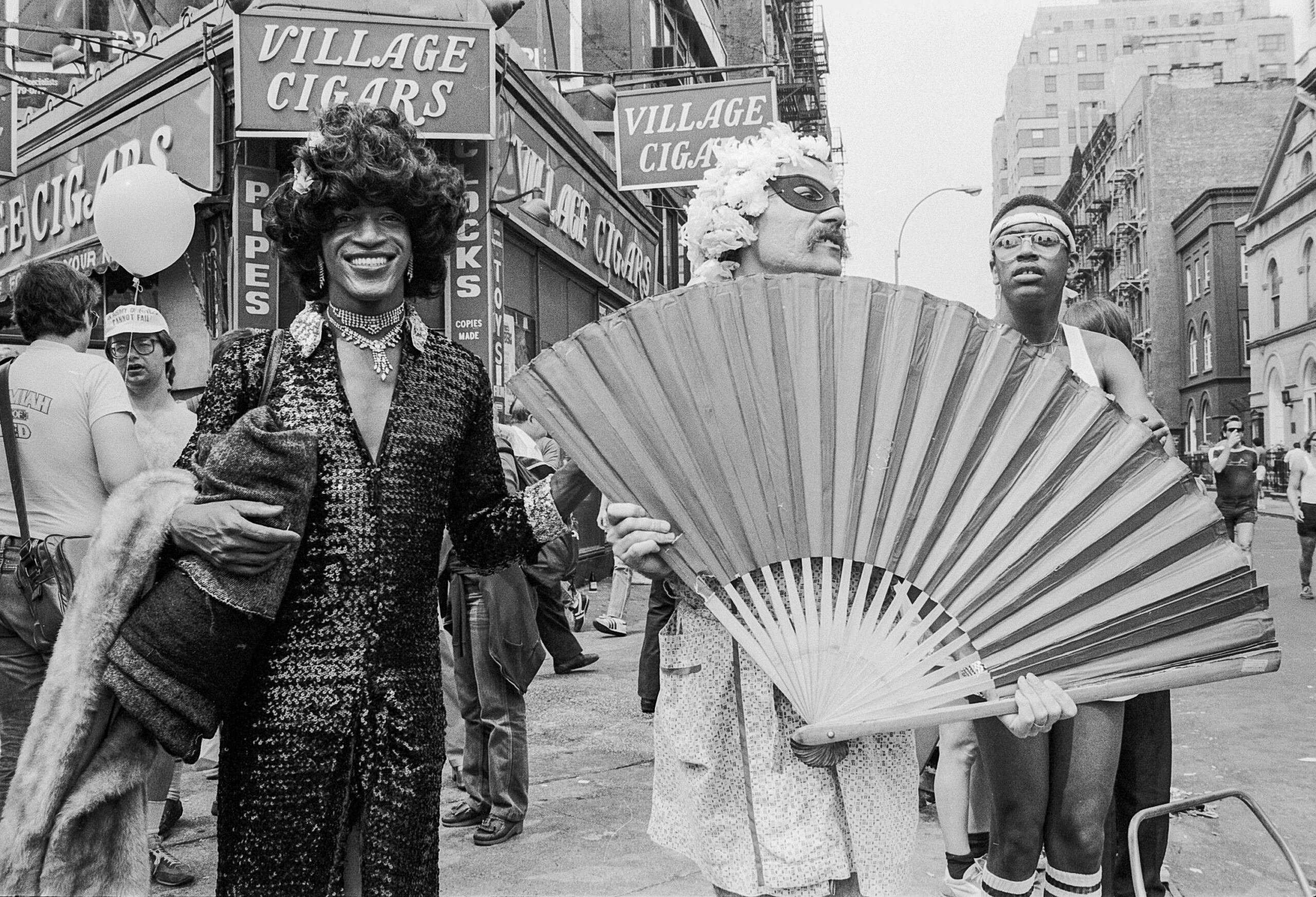Welcome to The Ideas Letter 10, in which we are delighted to feature a new essay by the savvy, subtle critic, Blake Smith. Blake uses Hannah Arendt’s notion of a world to rethink how minorities—gay culture in his telling—play a crucial role in resisting power by promoting the exchange of ideas. Can Arendt help us overcome the tensions between diversity and free speech? Blake walks us through this tantalizing possibility.
Elsewhere in this edition, Jonathan Rée in the London Review of Books turns the legendary nonagenarian philosopher Alasdair MacIntyre inside out, and reevaluates MacIntyre’s customized critique of Enlightenment ideas. Owen Hatherley, a committed Enlightenment modernist himself, then takes us into the world of architecture and raises questions anew about the modernist/neoclassical divide, especially as it relates to changes in the economy. The opposition between the two styles is, for Hatherley, more than the eye can see.
Dillon Walmsley, in the consistently phenomenal journal Phenomenal World, then dives into Clara Mattei’s important new book on austerity. New questions galore are explored here, especially the canard that austerity is an overdetermined feature—and not a bug—of neoliberalism. In a further exploration of history and austerity, Caleb Wellum discusses, via the New Books Network, how the oil crisis of the 70s wasn’t just about oil, per se, but a transformation in how we think about oil in the culture.
We finish with a London School of Economics video from the eminent British-Saudi social anthropologist Madawi Al-Rasheed. Madawi digs deep into the nature of Saudi nationalism and how its recrudescence under Mohammed bin Salman (MBS) is nationalism of a very different, instrumentalized kind.
Our musical selection this week is pop—pure, unalloyed pop. The singer Jeanette had a global smash hit in the mid-70s with the infectious “Porque te vas” And if you have seen Cría Cuervos, the great work by the Spanish filmmaker Carlos Saura, you will be familiar with the song’s deeper resonances.
—Leonard Benardo, senior vice president at the Open Society Foundations
Living in Arendt’s World
Blake Smith
The Ideas Letter
Essay
Hannah Arendt’s philosophy is an under-recognized influence in the rise of what we now call “identity politics,” vital elements in the intellectual matrix of the American gay movement. The career of gay activist Michael Denneny, the recently deceased co-founder and co-editor of the pioneering gay magazine Christopher Street, was inspired by his interpretation of the philosophical writing of his mentor Arendtand her Zionist activism. For Arendt, “minorities play a crucial role in resisting totalitarian ideologies and pre-totalitarian social conditions,” according to Smith.
In Arendt’s “account, minorities are important not insofar as they are internally unified groups engaged in the play of countervailing interests and powers, but rather insofar as they are internally heterogeneous groups whose very diversity offers a sort of school in which citizens learn how to have judgment: the capacity to express and exchange ideas without appeal to fixed rules. Differences within ‘our own groups’—our everyday experiences of debates with other people ‘like us’ in the spaces of our associational life (synagogues, union halls, gay bars, etc.) prepare us for the still more challenging experiences of disagreement in our wider political life, where we cannot necessarily trust that our interlocutors share our identities, experiences, and goals.”
Like a Top Hat
Jonathan Rée
London Review of Books
Essay
The philosophy of Alasdair MacIntyre also focuses on local forms of community, which for the philosopher were spaces “within which civility and the intellectual and moral life can be sustained.” Rée tracks MacIntyre’s intellectual evolution, from Marxism to Thomistic Aristotelianism. Youthful philosophical exploration convinced MacIntyre “that philosophy takes time. Instead of choosing an opinion that appeals to you and forsaking all others, you need to take on different arguments and give them time to sort themselves out,” writes Rée. In his work, MacIntyre argues that ethical philosophies must be understood within their historical contexts and “that morality is, as a matter of historical fact, woven into the fabrics of mutual understanding that bind us to our communities and give structure to our lives.” In his comprehensive theory of morality, MacIntyre “argued that every one of us is essentially a ‘story-telling animal,’ and that our stories provide us with scripts for our lives and templates for our relations with other people.”
The failure of what MacIntyre called the “Enlightenment Project” should remind us “of some facts that the mavens of modernity would like us to forget: that we are not invincible autonomous reasoning-machines, but frail animals shaped by unfathomable traditions; and that the world contains countless other traditions which may, for all we know, be more intelligent than our own. … This does not mean, however, that everyone is shackled forever to the traditions that shaped them. Traditions aren’t juggernauts or settled destinies: they falter, duck and weave in response to internal conflicts and external shocks. And they aren’t blindfolds either: they offer genuine insights, however partial, into the world we all share. They do not prevent you from criticising your own beliefs or finding out about different traditions, and perhaps becoming an admirer or even a convert. (It’s never too late for apostasy.) But when you change your mind you will do so not out of caprice but for reasons that strike you as compelling; and you will want to incorporate these reasons into the story of your life, and explain them to others in the hope of winning them over.”
The New Architecture Wars
Owen Hatherley
Aeon
Essay
Among other things, the financial crash of 2008 and the ensuing political chaos spurred a reaction against ultramodern “starchitecture”(public buildings designed by the celebrated architects of the late1990s and 2000s), pushing the dominant pendulum back towards the neoclassical. Critics have a point that “modern architecture” is untied to its local context, a feature that was once considered a strength, writes Hatherley.
“But by criticising placelessness—a lack of attention to local differences, whether aesthetic or material—architecture’s ‘trads’ are not always being entirely honest. Increasingly, modernism and classicism share the same issues …Both perspectives wrench architecture out of its context in a particular place: both the cosmopolitan, urban Left and the ostentatiously nativist, reactionary Right are really celebrating an international style of architecture.” Rather “the impasse faced by architecture, whether modern or classical, is really about global approaches to materials and construction, rather than aesthetics.”
“Today, in the context of the climate crisis, concerns with style hide more urgent concerns about construction and materials. It is not just tedious but actively dangerous to carry on building in the old way, whether that’s concrete frames dressed in titanium or coated in neo-Georgian stock brick. So, is there an alternative? If there is, it could likely emerge from some versions of traditionalism.”
The Logic of Austerity
Dillon Wamsley
Phenomenal World
Book review
“The Capital Order: How Economists Invented Austerity and Paved the Way to Fascism” by Clara Mattei challenges the prevailing wisdom that austerity is a neoliberal reaction to Keynesianism. “Perpetuation of austerity […] should not be reduced to a matter of irrationality or bad economic theory.” Rather, she argues, it should be understood as a “tool to maintain capitalist social relations of production.” For Mattei, efforts at class repression explain interwar austerity policies in liberal Britain and fascist Italy.
“Enforced through a triumvirate of fiscal, monetary, and industrial policies, austerity has both immediate distributive purposes and long-term political objectives. By slashing social spending, hiking regressive indirect taxes, and orchestrating recessions through deflationary monetary policies—thereby driving down wages—austerity channels wealth and resources away from the working classes and toward creditor classes. By promoting unemployment and market discipline, it neutralizes collective working-class power and fortifies economic control in the hands of central bankers and treasury technocrats insulated from political contestation. With the help of economists schooled in neoclassical dogma, this depoliticized capitalist economy acquires an aura of objective truth and impartial technocratic management.”
Energizing Neoliberalism
Caleb Wellum
New Books Network
Podcast
On the flip side of austerity, in “Energizing Neoliberalism: The 1970s Energy Crisis and the Making of Modern America” Caleb Wellum unpacks the cultural construction of the 1970s energy crisis across different sectors of society, arguing that the dominant meanings ascribed to the period helped to turbo-charge neoliberal visions of renewed abundance and power through free market values and approaches to energy consumption.
“Culturally the United States emerges in the post-World War II period as this, just massive energy consumer. …This really was unprecedented, the degree of energy consumption that existed in the post war U.S. … One thing that hadn’t been discussed before was this effort to create a mass consuming society, to create a contrast to Soviet Communism, as an antidote of sorts to Soviet Communism. In the post war period, America’s ability to make consumption accessible to more and more people was taken to be a sign of its superiority as an economic system, over, against Communism.”
The Perils of Saudi Nationalism

Madawi Al-Rasheed
London School of Economics
Video
The process of building a nation in Saudi Arabia faced challenges from the start; the Al-Saud rulers grappled with melding together various fragments, including prevalent sub-national identities in Arabia and the supra-national Islamic identity promoted by the regime for legitimacy. However, with the ascension of Crown Prince Mohammed bin Salman in 2017, a new form of populist Saudi nationalism has been advocated.
“By constructing the youth as a homogeneous national group, the Crown Prince defines their needs, dissolves their differences, and promises to provide opportunities for their rising aspirations. As Fred Halliday pointed out, many decades ago, inequality and injustices are erased in national narratives. The new so-called nationalism offers the youth a break from past economic stagnation, religious zeal, and social conservatism. It is only after the destruction of the old ways of doing things that the new nation will be born. The first step is rooting out and destroying old forces held responsible for immersing Saudi Arabia in religious fanaticism and social conservatism. It is to launch a repressive detention campaign and also executions against anybody or any dissident voice in the country. And this is exactly what had happened, and this is the price that Saudis pay for the new Saudi nationalism.”
